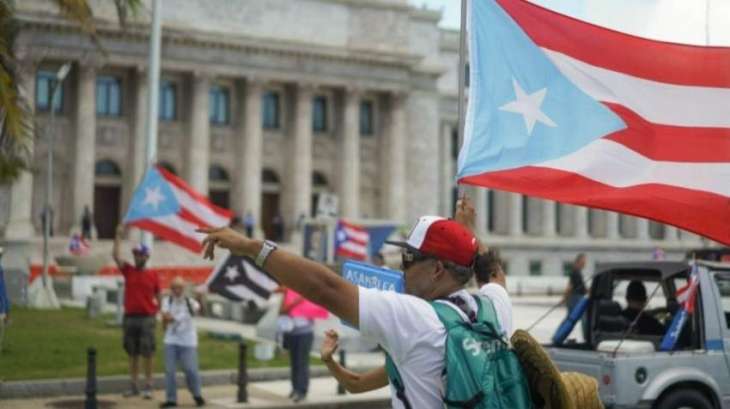Puerto Rico, which is currently an unincorporated US territory in the Caribbean, is expected to hold another statehood referendum that will likely stir social discontent and unrest, President of the National Sovereign State of Borinken (ENSB) Ramon Nenadich told Sputnik, adding that he was going to raise the issue with the United Nations' Special Committee on Decolonization
MOSCOW (Pakistan Point News / Sputnik - 21st May, 2020) Puerto Rico, which is currently an unincorporated US territory in the Caribbean, is expected to hold another statehood referendum that will likely stir social discontent and unrest, President of the National Sovereign State of Borinken (ENSB) Ramon Nenadich told Sputnik, adding that he was going to raise the issue with the United Nations' Special Committee on Decolonization.
Last week, Puerto Rico's Governor Wanda Vazquez said that the referendum would be held during the November 3 general elections and would only ask one question of whether Puerto Rico should be immediately admitted as the 51st US state. The results of the referendum will be non-binding and will need approval from Congress. So far, Congress has never acted on the island's previous referendums, the last of which was organized in 2017.
"Assuming that Puerto Rico becomes a state of the United States, the economic impact of such absurdity will be disastrous for us. Although the country will have more Federal funds coming in, we will have to pay federal taxes, which will turn many people broke. The areas that may be impacted by the federal funds are education, health care, and social security," Nenadich said.
The activist added that the US government currently paid less money in social security to the Puerto Rican retirees than to those on the mainland, which would not change if the Caribbean island nation became the US state.
"We are denouncing this as a total mistake and we will take that complaint to the United Nations Decolonization Committee," Nenadich said, commenting on the referendum idea.
Puerto Ricans are US citizens but cannot vote in US presidential elections. The island is exempt from the US federal income tax, but it gets less federal funding than US states, which has been raising concerns amid the coronavirus pandemic.
The island has already had five referendums, but they have never asked one single question and have never been so direct. The last one in 2017 had the turnout just above 20 percent, and in the previous ones, no clear majority ever emerged.
"We will never become a state of the United States. Washington D.C. will never accept us as a state of the Union. That will give us a big power within the Congress and the Senate because the majority of the people here are democrats and this means that we will have two Democratic senators and five or six Democratic representatives in the Chamber, and the Republicans are not stupid," Nenadich noted.
The referendum idea has outraged island independence supporters and the Popular Democratic Party, currently in opposition, which advocates the status quo. The governing New Progressive Party (NPP) supports statehood. In April, there were media reports alleging that the NPP had ties with two small companies that had won the contracts to provide the government with the rapid COVID-19 test kits, which were later found unusable since they had never been approved by the food and Drug Administration.
"The majority of the people do not want to be a state of the US. But there is a group of highly corrupt politicians that are trying to force us to become part of the Empire. If something like this happens, major political unrest will be a daily consequence of such a mistake," the activist said, adding that because of the recent scandal, the New Progressive Party has already lost many of its supporters.
According to Nenadich, the turnout at this referendum will be low.
In a June 2017 referendum on statehood, 97 percent of Puerto Ricans casting ballots choose statehood, but only 23 percent of the island's electorate voted.




